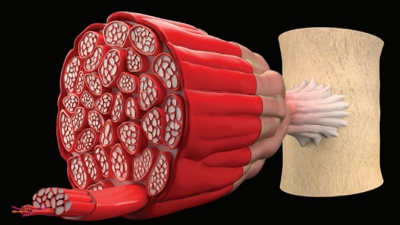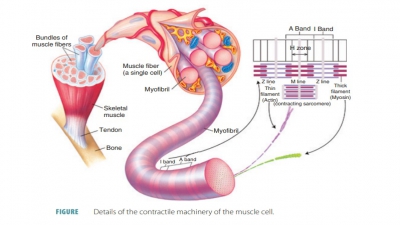Characteristics of Muscle Tissue
| Home | | Anatomy and Physiology | | Anatomy and Physiology Health Education (APHE) |Chapter: Anatomy and Physiology for Health Professionals: Support and Movement: Muscle Tissue
Muscle tissue has four unique characteristics, which include excitability, contractility, extensibility, and elasticity.
Characteristics of Muscle Tissue
Muscle tissue has four unique
characteristics, which include excitability, contractility, extensibility, and
elasticity.
Excitability
Excitability is also called responsiveness, which is the cells’ ability
to receive and respond to stimuli. Cells accomplish this by changing their
membrane potential. Stimuli within muscles are usually chemi-cals such as
neurotransmitters released by nerve cells. Excitability is the ability of
muscle fibers to respond quickly to stimuli. It is controlled by the chemical
and electrical states of the sarcolemma, and how long since a previous stimulus
was applied.
Contractility
Contractility
is the ability of muscle tissues to
forcibly become shorter when sufficient stimulation is supplied. This
ability is unique in muscle tissue compared to all other types of tissue.
Contractility is defined as the abil-ity to reduce in size or to develop
increased tension.
Extensibility
Extensibility is the ability of muscle tissue
to stretch or extend. Muscle cells
can shorten when they contract and also stretch when relaxed. They are able to
stretch beyond their resting length.
Elasticity
Elasticity is the ability of muscle tissues
to recoil. They can then resume their
resting lengths after stretching.
Related Topics


